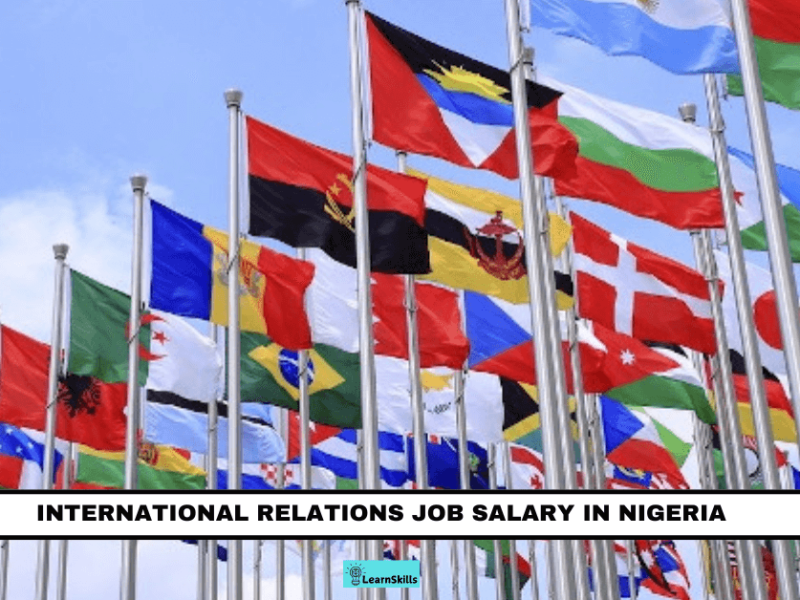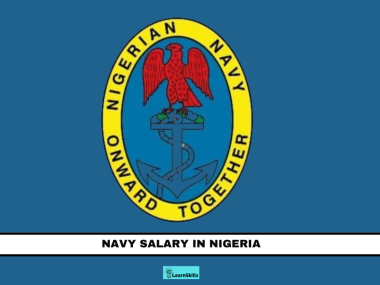If you are considering a career in international relations in Nigeria, it’s essential to know the expected salary.
On average, positions in international relations can earn anywhere from ₦3 million to ₦12 million yearly, depending on the role and level of experience. This range reflects various jobs, from government positions to roles in private companies and NGOs.
You might find yourself working as a diplomat, foreign service officer, or in government relations, each with its unique pay structure.
For example, diplomats in the Nigerian Ministry of Foreign Affairs can earn between $32 and $59 per hour. This wide range of opportunities makes the field of international relations both promising and diverse.
As you explore different job paths, understanding salary expectations will help you make informed decisions about your career.
Understanding International Relations Jobs in Nigeria
International relations jobs in Nigeria encompass various roles that deal with diplomacy, global affairs, and national interests. These positions require a solid understanding of political systems, global issues, and the values your country represents on the world stage.
Scope of the Field
The field of international relations in Nigeria includes jobs like diplomatic officers, intelligence analysts, and policy advisors. These roles are vital for managing Nigeria’s foreign policy and engaging with other nations.
You may work within the Ministry of Foreign Affairs or various agencies that focus on international cooperation.
Jobs in this field also involve working on issues like trade, security, and humanitarian efforts. With Nigeria’s growing influence, there are increasing opportunities for international organizations and non-governmental organizations (NGOs) too.
Key Roles and Responsibilities
As a diplomat, your primary duty is to represent Nigeria abroad. This involves negotiating treaties and fostering relationships with other countries.
Other key roles include:
- Intelligence Analyst: You will research and analyze data to inform government policy.
- Policy Advisor: You will provide expert advice on international trends and national security.
These roles often require strong leadership skills, the ability to work in high-pressure environments, and a dedication to your country’s mission and values.
Each position plays a significant part in shaping Nigeria’s stance on global issues and ensuring national interests are upheld.
Salary Overview
In Nigeria, salaries in international relations depend on various factors, including job position, experience, and educational background. Understanding these elements can help you gauge your earning potential in this field.
Factors Affecting Salary
Several factors play a crucial role in determining your salary in international relations.
Experience: Entry-level positions typically pay less than roles requiring several years of experience. As you gain skills, your earning potential increases.
- Education: Higher degrees, like a Master’s or specialized certifications, often lead to better-paying jobs. Graduates from well-known universities may also have an advantage.
Position and Responsibility: Your specific role, from a diplomat to a communications officer, impacts salary. Diplomats, for example, can earn an average of $90,304 annually.
Industry and Sector: Salaries may vary between government jobs and private organizations. For instance, working for the Nigerian Ministry of Foreign Affairs offers competitive wages.
Salary Expectations by Position
Salary expectations depend on your job title and duties. Here are some average salaries for common positions:
- Diplomat: Approximately ₦3 million per year.
- Communications Officer: Average salary around ₦840,000 annually.
- Policy Analyst: Salaries can range from ₦1 million to ₦5 million, based on experience.
Salaries in international relations jobs can vary widely, but they often reflect the complexity and importance of the work. Growth opportunities also exist, allowing for upward mobility as you advance in your career.
Working Conditions and Environment
In international relations jobs in Nigeria, the workplace environment emphasizes diversity, inclusion, and equity. Understanding these elements can help you navigate your career effectively.
Workplace Diversity
Diversity in the workplace is essential for fostering innovation and collaboration. In Nigeria, there is a mix of employees from various backgrounds, cultures, and educational experiences. This diversity enhances problem-solving abilities and can lead to better decision-making.
Employers often prioritize hiring individuals from different gender identities, ethnic groups, and socioeconomic backgrounds. This commitment helps create a dynamic atmosphere where everyone feels valued.
Companies may also implement policies to promote gender balance. For example, initiatives to increase female representation in leadership roles are becoming more common.
Inclusion and Equity Practices
Inclusion refers to creating a workplace where all employees feel accepted and valued. Many organizations in Nigeria focus on making sure everyone can contribute their ideas and perspectives.
Equity is about providing fair opportunities for all. Companies may develop programs to support underrepresented groups, ensuring they have access to training and career advancement.
Policies could include mentorship programs aimed at marginalized employees and this creates a pathway for professional growth.
Employers also often conduct training on cultural sensitivity. This can improve communication and understanding among diverse teams. These practices support a healthy work environment where you can thrive in your career in international relations.
Career Development and Progress
In the field of international relations, focusing on career development is essential for long-term success. By investing in growth opportunities and continuing education, you can enhance your skills and move forward in your career.
Professional Growth Opportunities
Several paths exist for professional growth in international relations. You can aim for roles such as Diplomatic Officer or Intelligence Analyst, where experience leads to better salaries and responsibilities.
- Networking: Connecting with professionals in your industry can open doors to new opportunities. Attend conferences, workshops, or seminars.
- Mentorship: A mentor can provide guidance and insight into advancing your career. Seek out experienced professionals willing to share their knowledge.
Progress in your career often comes from taking on projects that stretch your capabilities. Make sure to set clear goals to measure your development.
Training and Education
Investing in your education is crucial for career advancement. A degree in international relations can lead to better job prospects. Consider pursuing further qualifications, such as a master’s degree or specialized certifications.
- Workshops and Courses: Participate in training sessions to update your skills. Focus on areas like conflict resolution, diplomacy, or international law.
- Online Platforms: Many resources are available online to improve your learning. Websites like Coursera or LinkedIn Learning offer relevant courses.
Investing in your education and training helps you adapt to changing job markets, making you a valuable asset in your field.
Recruitment and Employment Standards
In the field of international relations, understanding recruitment and employment standards is essential. These standards ensure that you know what to expect during the hiring process and that your rights are protected.
Hiring Policies
Hiring policies in Nigeria typically require candidates to possess relevant degrees and experience.
For international relations roles, having a Bachelor’s or Master’s degree in fields like Political Science or International Affairs is often necessary. Additionally, employers may look for candidates with internships or related experiences.
The selection process often includes interviews, assessments, and background checks.
Many organizations favor hiring individuals who demonstrate strong communication and analytical skills. Familiarity with international laws and human rights standards may also enhance your appeal as a candidate.
Equal Opportunity Employment
Equal opportunity employment is a key standard in Nigeria. Employers are expected to hire without discrimination based on gender, race, religion, or other personal characteristics. This principle is often reinforced by local labor laws and international agreements that protect human rights.
As a job seeker, you should be aware of your rights. Companies should provide a fair hiring process that values diversity.
Many organizations also commit to creating inclusive workplaces to foster equal representation. Being aware of these practices can empower you during your job search and interviews.










